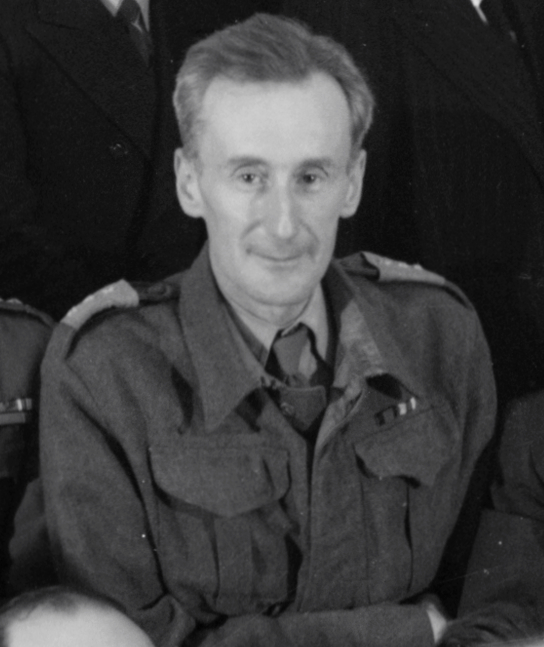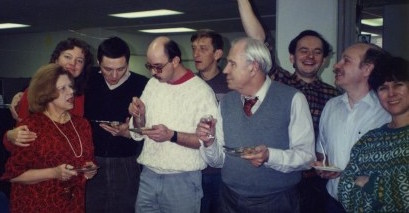Cold War Radio Museum Former Polish President Lech Wałęsa said last year that in 1987 the then Vice President George H.W. Bush showed “he was a friend of Poland” and convinced him that Poland can get rid of communism. Former Polish Solidarity leader made that remark in reference to George H.W. Bush’s visit to Poland in 1987 at the…
Cold War Radio Museum Voice of America Then and Now Historically, partisanship at the Voice of America has been most often associated with Left-wing bias of some of its officials and central English newsroom reporters. By Ted Lipien After leaving the White House in 1961, former President Dwight D Eisenhower condemned a biased Voice of America (VOA) reporter who…
Vice President George H.W. Bush interviewed for Voice of America by Ted Lipien and Wayne Corey in 1987
Cold War Radio Museum Voice of America (VOA) Polish Service director Ted Lipien and VOA English Service correspondent Wayne Corey interviewed the then Vice President George H.W. Bush on September 24, 1987 in his office in Washington shortly before his trip to Italy to see Pope John Paul II and to Poland to confer with government and opposition leaders.…
Cold War Radio Museum Patricia Gates Lynch Ewell, U.S. ambassador and broadcaster at the Voice of America (VOA), a tax-funded U.S. government media outlet for foreign audiences where she was known as Pat Gates, was a remarkable radio personality. She may have had more listeners to her English-language programs than Willis Conover’s VOA jazz programs in English, although various…
Cold War Radio Museum During the Cold War, it would have been unthinkable for the United States government to put in charge of U.S. international broadcasting through the Voice of America (VOA) an American businessman like Armand Hammer who had made millions for his company in various business deals with Soviet Russia. U.S. international broadcasting and business activities behind the…

Pro-Stalin Voice of America Propaganda Revealed in 1984 VOA Interview with Józef Czapski
Cold War Radio Museum A recent (2017) independent study by the American Foreign Policy Council (AFPC) focusing on Voice of America (VOA) broadcasts to Iran has found that under Obama administration officials these broadcasts “perpetuated to audiences the appearance of pro-regime [Iran] propaganda, rather than objective reporting, on the part of both the VOA and Farda.” Radio Farda broadcasts to…

Voice of America Polish Service Broadcaster Irene Broni Resisted Nazis and Communists
By Ted Lipien Voice of America Polish Service Program “All About America” (Ameryka w Przekroju), July 9, 1983 Irena Radwańska Broni: Returning to the U.S. citizenship oath ceremony at Monticello, Thomas Jefferson would certainly approve of using his home for this purpose. … Thomas Jefferson wrote: “Born in other countries, yet believing you could be happy in this, our laws…
Cold War Radio Museum 1990 VOA Polish Service Bilingual Polish-English Newscast [ss_player] The Cold War was almost over in 1989-1990. The Voice of America was looking for new ways to deliver news to Eastern Europe. The bilingual VOA Polish-English newscast was one of several projects initiated in the VOA Polish Service. The ten-minute bilingual newscast was…
Cold War Radio Museum Thanks to generous donations from Voice of America employees, the online Cold War Radio Museum acquired an original photograph of VOA broadcaster Willis Conover interviewing jazz musician Louis Armstrong autographed by both for Croatian musician Miljenko Prohaska. The back of the photograph has the following text: AMERICAN JAZZ STARS INTERVIEWED ON VOICE OF AMERICA “MUSIC,…
Cold War Radio Museum New York, New York. 1943 “United Nations” exhibition of photographs presented by the United States Office of War Information (OWI) on Rockefeller Plaza. Listening to broadcasts of President Roosevelt, Churchill, Stalin, and Chiang Kai-shek, heard every half-hour from a loudspeaker at one end of the frame containing the Atlantic Charter. This frame is surrounded by four…